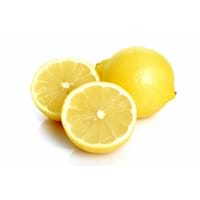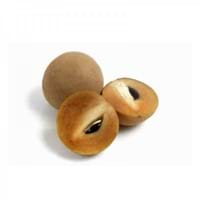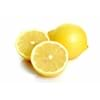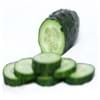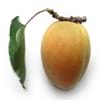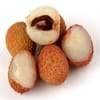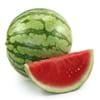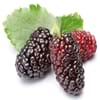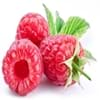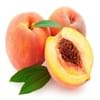Health Benefits
Arthritis treatment, Asthma treatment, Cancer prevention, Kidney stone treatment, Prevents constipation, Purging blood, Treatment of rheumatism
Anti-inflammatory properties, Arthritis treatment, Regulates Blood Sugar, Unknown
General Benefits
Boosts immune system, Cures headache, Cures fever, Digestive aid, Flu treatment, Maintains healthy cholesterol level, Treatment of common cold
Boosts immune system, Controls blood sugar levels, Digestive aid
Skin Benefits
Heals sunburn, Reduces wrinkles, Skin rejuvenation, Treatment of acne, Treatment of skin diseases
Nourishes skin, Protects skin from oxidative stress
Hair Benefits
Prevents hair loss, Treatment of dandruff
Prevents hair loss, Promotes longer and healthier hair, Regulates hair growth
Allergy Symptoms
Eczema, Hives, Inflammation, Itching, Skin rash, Swelling
Asthma, Red rash, Swelling of mouth, tongue or lips
Side Effects
Diuretic effects, Heart burn, Tooth decay, Chances of sunburn
Diarrhoea, Vomiting
Best Time to Eat
Along with meal, Best to drink lemon water on an empty stomach., Don't consume at night and before bed
As a snack in the late afternoon
Vitamin B5 (Pantothenic Acid)
Vitamin C (Ascorbic Acid)
Vitamin E (Tocopherole)
Not Available
Vitamin K (Phyllochinone)
Not Available
Lutein+Zeaxanthin
Not Available
Calories in Fresh Fruit with Peel
Not Available
Calories in Fresh Fruit without Peel
Not Available
Calories in Juice
Not Available
Calories in Jam
Not Available
Calories in Pie
Not Available
Type
Citrus, Tree fruit
Berry
Season
All seasons
Winter
Varieties
Avalon Lemon, Bears Lemon, Buddha's Hand, Bush Lemon, Citron, Eureka Lemon, Dorshapo Lemon, Finger Citron and Fino Citron
Bush Table Queen, Heirloom Table Queen, Festival Hybrid, Early Acorn Hybrid, Table Ace, Ebony and Cream of the Crop
Seedless Variety
Yes
Not Available
Color
Yellow, Yellowish-orange
Dark green, Green-yellow, Orange green
Inside Color
Yellow
Not Available
Origin
China, India
Central America, North America, Unknown
Soil Type
Well-drained
Well-drained
Climatic Conditions
Hot, Sunny
Cold, Sunny
Facts about
- Oil extracted from lemon peels is used for fingerboard of guitars.
- During Renaissance, ladies used lemons to redden their lips.
- Aroms of lemon decreases the level of stress hormones.
- It was named as Acorn Squash for its resemblance to a large ribbed acorn.
- It is said that squash was being grown in Mexico as long as 10,000 years ago.
- It was the first food cultivated by native American Indians.
Spirits
Yes
Not Available
Cocktails
Yes
Not Available
Other Countries
Argentina, Brazil, India, Iran, Italy, Mexico, Spain, Turkey, United States of America
Egypt, India, Iran, Italy, Mexico, Russia, Turkey, Ukraine, United States of America
Top Importer
United States of America
UAE
Top Exporter
Mexico
India
Botanical Name
Citrus limon
Cucurbita Pepo
Synonym
Not Available
Winter Squash
Subkingdom
Tracheobionta
Tracheobionta
Division
Magnoliophyta
Magnoliophyta
Class
Magnoliopsida
Magnoliopsida
Subclass
Rosidae
Dillenhidae
Order
Sapindales
Cucurbitales
Family
Rutaceae
Cucurbitaceae
Generic Group
Citrus fruit
Not Available
Compare Lemon and Sapota
It is important compare Lemon and Sapota as both the fruits have a different nutritional value. Their comparison can be done on the basis of their vitamin and mineral content, calories, benefits as well as characteristics, making it easier for us to choose the best fruit for our diet. Their general health benefits are as follows:
Lemon Benefits: boosts immune system, cures headache, cures fever, digestive aid, flu treatment, maintains healthy cholesterol level and treatment of common cold.
Sapota Benefits: boosts immune system, controls blood sugar levels and digestive aid.
Fruits are also used as a remedy for various hair problems. The hair benefits of Lemon are: prevents hair loss and treatment of dandruff and hair benefits of Sapota are: prevents hair loss, promotes longer and healthier hair and regulates hair growth. Some fruits are known to cause allergic reactions. The allergy symptoms of first fruit are: eczema, hives, inflammation, itching, skin rash and swelling and the symptoms of second fruit are: asthma, red rash and swelling of mouth, tongue or lips. Get sorted Lemon vs Sapota comparison with the help of fruit comparison tool by fruitvs.com.
